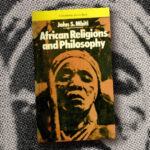In many African spiritual traditions and certain Christian communities, the phrase “back to sender” is commonly used. This practice involves sending back curses, harm, or spiritual attacks to their perceived origin, often seen to neutralise oppression. Though this concept is prevalent in both traditional spirituality and some Christian circles, it poses significant dangers and contradictions, particularly when compared to biblical teachings.
Sending Spiritual Forces Back to Their Origin
In African spirituality, harmful forces can be sent to individuals in various forms, such as Islwane (spiritual animals) or Isichitho (curses). These forces, typically wielded through witchcraft or magic, are believed to cause physical harm, destroy relationships, or bring misfortune. For instance, Isichitho is often used to create division in relationships, making one person unattractive to another or causing discord between families.
When we return evil for evil, we perpetuate cycles of violence and hatred.
According to popular traditional healer and scholar of African spirituality, Siyabonga Mkhize, the only way to be healed from Islwane or Isichitho is for a traditional healer to send these spiritual forces back to their origin. Mkhize asserts that returning the harm to its source is the only true way to neutralise the threat. This practice forms the basis of the back to sender philosophy.
However, while it may seem like a defence against spiritual harm, it is important to consider the far-reaching spiritual consequences of such a practice, which need to be examined more closely.
The Christian Adoption of Back to Sender
Regrettably, the back to sender philosophy has crept into Christian circles. In certain churches, back to sender prayers are offered to combat perceived spiritual attacks. These prayers often involve calling out someone’s name multiple times, invoking the belief that repeating the name empowers the prayer to return the spiritual harm to its origin.
Verses like Isaiah 54:17 (“no weapon formed against you shall prosper and every tongue that shall rise against thee in judgment thou shalt condemn”) and Psalms 35:8 (“may ruin overtake my accusers”) are often cited to support such prayers. These prayers typically ask God to deal with the person or source causing harm, sometimes even invoking harsher consequences, believing that sending back curses will protect the believer from further harm.
Christ has already secured victory over all spiritual forces.
Such a practice raises serious concerns. Many Christians who engage in back to sender prayers live under the assumption that they can be bewitched while remaining Christian. This reflects a lack of confidence in the finished work of Christ, who, according to the Bible, has already secured victory over all spiritual forces (Colossians 2:15; Romans 8:37; 1 John 4:4).
Furthermore, if a Christian can be bewitched, then it would logically follow that they could send back to sender. However, this assumption contradicts the biblical truth that those in Christ are under his divine protection. To accept that believers can be cursed is to deny the power and sufficiency of Christ’s victory over all spiritual forces.
Taking Revenge but Not Responsibility
The back to sender mentality is problematic from both a Christian and the African worldview. The Bible gives clear directives on how Christians should respond when wronged. In Matthew 5:44, for example, Jesus commands us to love our enemies and pray for those who persecute us, making it clear that retaliation is not the Christian response.
Retaliation is not the Christian response.
By returning harm for harm, the back to sender philosophy contradicts Jesus’ teachings, which emphasise grace and forgiveness over revenge. When we return evil for evil, we perpetuate cycles of violence and hatred rather than resolving the issue. Because an eye for an eye makes the whole world blind. Instead of addressing the root of the problem, we only extend its destruction.
The back to sender mentality also assumes that the problems in our lives are caused by others, equating blessings with a life free from struggle and curses with difficulties. It promotes the idea that external solutions, rather than internal transformation, are the answer to life’s challenges. This mindset minimises personal responsibility and, ironically, seeks to counter harm with more harm.
God’s Call for True Transformation
While the back to sender practice may seem to offer a solution to injustice, it ultimately fails to provide genuine spiritual protection. According to the Bible, true protection doesn’t come from sending curses back but from reconciliation—first with God, then with others. While traditional healers may offer such practices as remedies, Christianity offers a transformative solution that goes beyond external forces and reaches the human heart.
True protection doesn’t come from sending curses back but from reconciliation.
The gospel proclaims that Jesus Christ alone has power over sin, death, and every spiritual force. The back to sender concept assumes that curses determine a person’s fate. But scripture reveals that Christ reigns supreme over all powers. Those who belong to him have no reason to fear. They are secure in his love. God is greater than the one who is in the world, and no force of darkness can overcome him. True protection is not found in counter-curses but in resting in the absolute power and victory of Christ.
The Bible repeatedly calls us to forgive those who wrong us and to leave judgment to God. “Vengeance is mine” (Romans 12:19). Taking matters into our own hands and returning harm only undermines God’s sovereignty and his ability to handle justice on our behalf. More troubling, this approach can reduce Christianity to a transactional faith, where we view God not as our Saviour but as a tool for personal revenge.
Beware the Spiritual Bondage
Rather than embracing the back to sender practice, Christians are called to respond with trust in Christ’s finished work, forgiveness, positive prayers, and love. This is the only way to break free from the destructive cycles of fear, anger, and curses that the back to sender mentality perpetuates between people. The church should be at the forefront of promoting true reconciliation, grounded in biblical principles, rather than endorsing practices that perpetuate harm.
The back to sender philosophy ensnares people in a cycle of vengeance and spiritual bondage.
The back to sender philosophy, whether rooted in African spirituality or certain Christian circles, ultimately ensnares people in a cycle of vengeance and spiritual bondage. It presents a false solution to the deep spiritual brokenness that only Christ can truly heal. As Christians, we are called to trust in God’s sovereign justice, to forgive those who wrong us, and to love our neighbours as ourselves. True spiritual freedom is found not in seeking retribution, but in resting in Christ’s finished work, knowing that he has already secured our victory over all powers, both seen and unseen.













